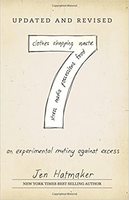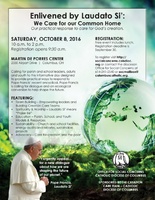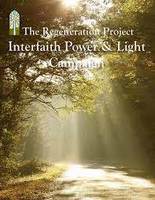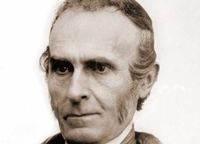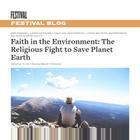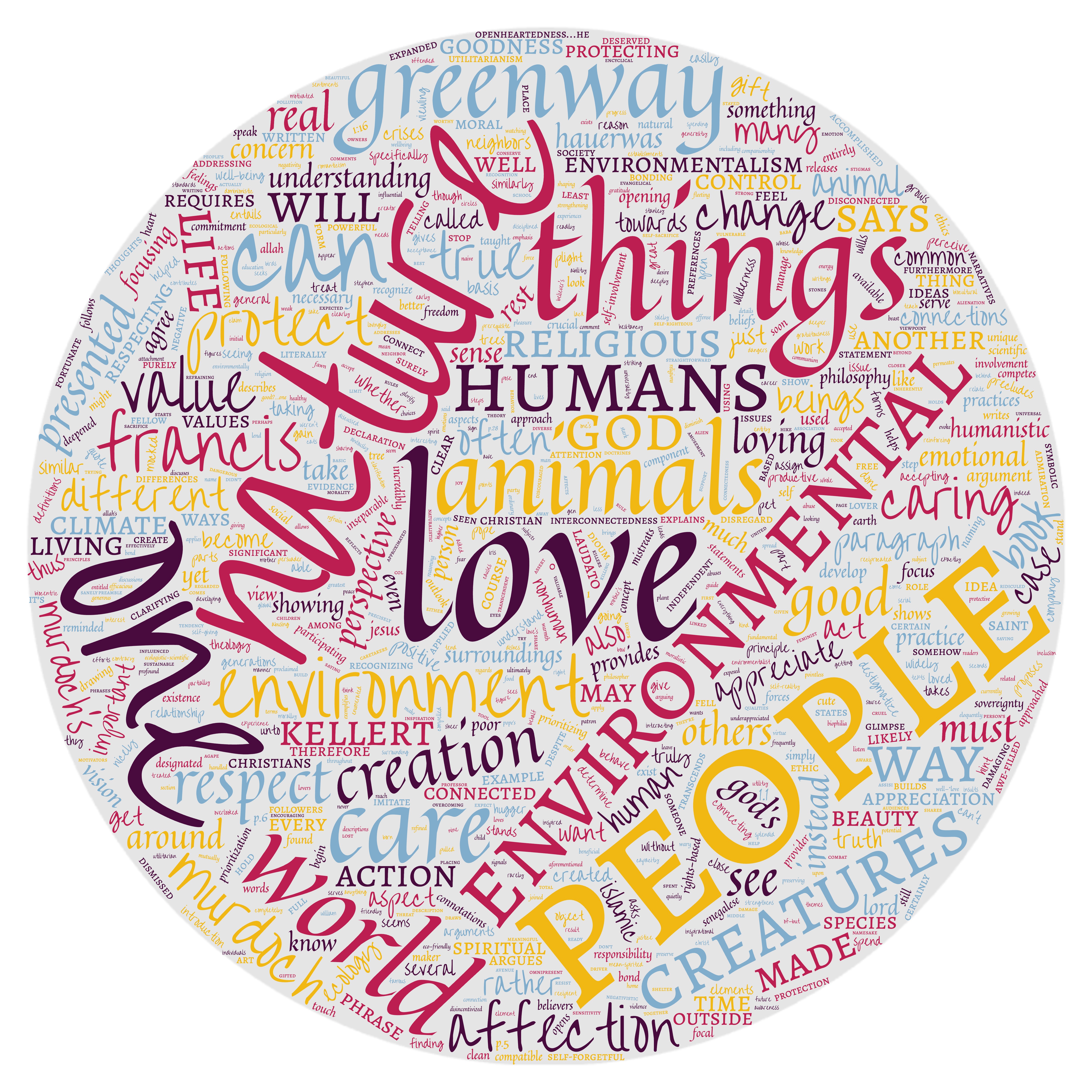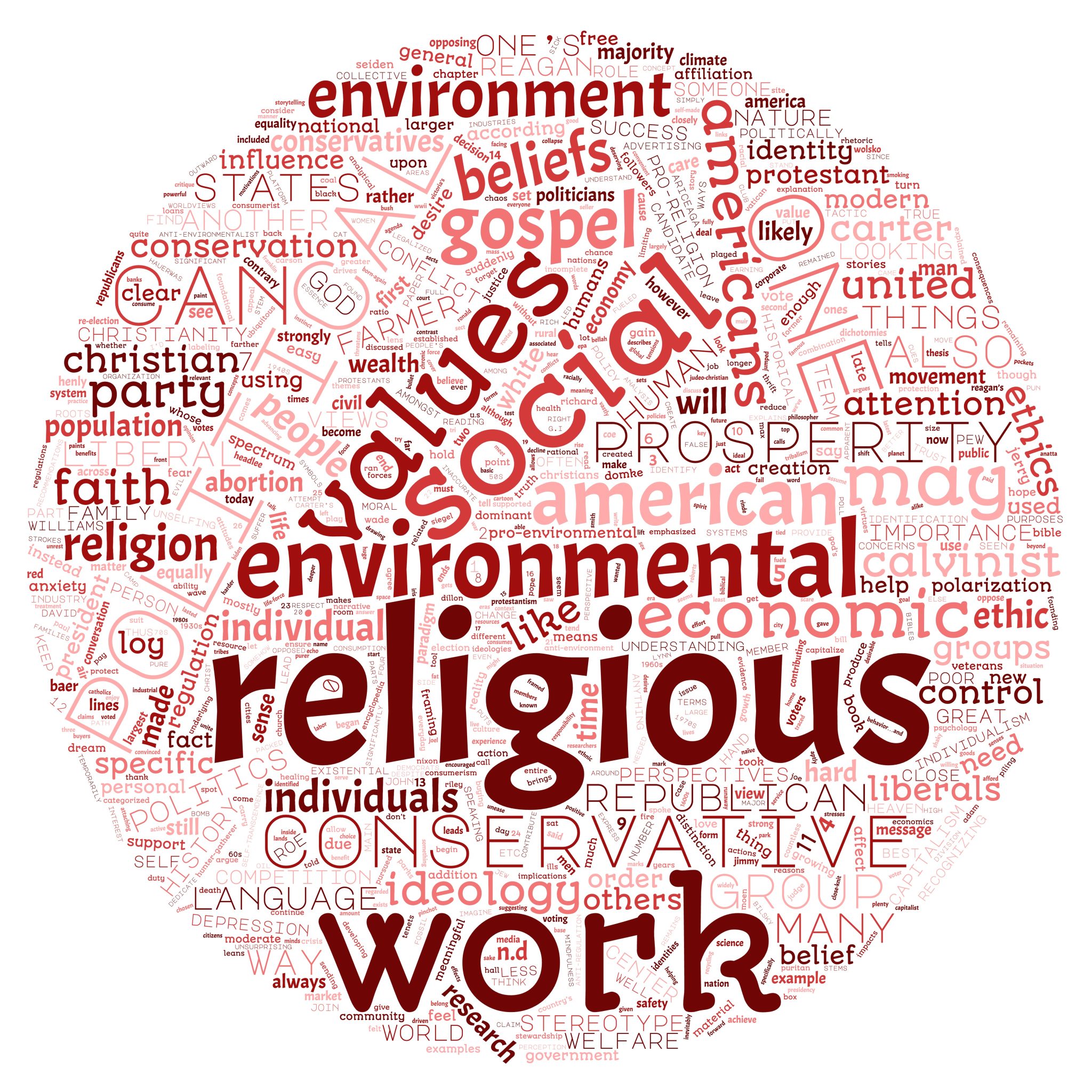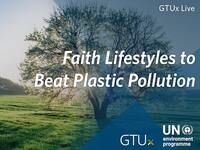Search
155 items
-
Eco-Prayer Guidelines
Eco–Prayer Guidelines offers suggestions for eco-prayer and good will intentions. They describe eco-prayer principles and explain why praying and positive intentions are important. Their 9 principles are listed in the guidelines and more information on the definition of eco-theology. -
7: An Experimental Mutiny Against Excess
Overwhelmed by the excess in her own life, Jen Hatmaker and her family set out on a project they called “Seven.” Highlighting seven areas of excess, they committed to living a little more simply every month. Originally published in 2011 and updated in 2017, 7 has been utilized for book studies in many Christian faith communities. For those overwhelmed with the task of implementing creation care in their own lives, Hatmaker’s memoir tells of her family’s practical and faith inspired experiment. More information about Hatmaker’s project can be found on her blog. -
A Prayer for Labour Day
As Labor Day approaches, it is important to remember to relax and enjoy a day free of work. Godspace (https://godspacelight.com/about/) has offered a prayer to give thanks for the hard work of laborers and communities, and to reflect on gratitude, mercy, service, justice, and the beauty of creation through God’s work. This prayer is adapted from a prayer found on the Christ Church Ontario website. -
For Love of Lavender
For Love of Lavender is an account of how Christine Sine, creator of Godspace and writer for Evangelical Environmental Network MOMS, encountered God through the beauty, fragrance, and abundance of the lavender in her garden. Reflecting on her garden informs her of God's work and calls to mind numerous bible verses, including Proverbs 27:9: The heart is delighted by the fragrance of oil and sweet perfumes, and in just the same way, the soul is sweetened by the wise counsel of a friend. Christine also mentions how to use these lessons to teach children. -
Saving Buffalo Reef
This 11-minute video, by the Great Lakes Indian Fish & Wildlife Commission (GLIFWC), informs the viewer of the natural, cultural, and economic importance of Buffalo Reef. This reef is located off the Keweenaw Peninsula, Michigan, in Lake Superior. Buffalo Reef is currently under ecological distress due to local mining activities. Current Tribal, State, Federal, and Academic efforts are underway to help restore this significant environmental feature, as documented in this video. -
Today is registration deadline for Columbus Diocese Creation Care Conference on Oct. 8
The Columbus Diocese is offering a day of reflection, inspiration, study, and sharing of resources to help Columbus area Catholic communities respond to Pope Francis’ environmental urgings in his recent encyclical, Laudato Si: Caring for Our Common Home. The conference: “Enlivened by Laudato Si’: We Care for our Common Home: Our practical response to care for God’s creation” will be held at the Martin De Porres Center in Columbus from 10am-2pm on Saturday, October 8.
The conference will feature creation care team building sessions, spirituality and worship, education, sustainability information for energy savings, and advocacy to care for creation and the poor. Dr. Greg Hitzhusen of the School of Environment and Natural Resources at Ohio State will deliver a keynote address. -
Science Mike to speak tonight at Broad Street Presbyterian
Event Announcement:
Columbus Broad Street Presbyterian Church and the Presbytery of Scioto Valley Commission for Nurture and Outreach will host Science Mike on Friday, October 14.
Mike McHargue is the host of two podcasts, Ask Science Mike and The Liturgists. Mike, an amazing and popular communicator, will be recording an episode of Ask Science Mike during his evening presentation at Broad Street PC.
Tickets are $15 and are available from: www.findinggodinthewaves.com/tour
-
Columbus YMCA Youth Engage in 4-H Urban Gardening Program for Cultural Exchange with Youth in Accra, Ghana
This summer, dozens of Columbus North YMCA youth participated in 4-H urban gardening programs as part of an urban agriculture exchange program with 4-H and YMCA youth from Accra, Ghana. In response, in May of 2017, three Ghanaian youth and an advisor will travel to Columbus to share their urban agriculture experiences at the annual Ohio Future Farmers of America (FFA) conference at the Ohio State Fairgrounds. Please click the link below to read more: -
Profile: Rev. Pat Watkins
The Reverend Pat Watkins is a missionary with the General Board of Global Ministries of The United Methodist Church. He is guiding a new, globally-focused United Methodist Ministry with God’s Renewed Creation, based at Global Ministries and also closely related to the Council of Bishops. While faith has traditionally looked at relationship with God and relationships with other people, he began to see a relationship between faith and the created order. Please click the link below to read more about Reverend Watkins: -
New Community Project Creative Arts Page
The New Community Project created a creative arts page to offer resources for justice, peace, and care for creation. In the caring for creation section, there are skits, checklists, and worship resources all centered around this topic. -
Earth Ministry Songs and Hymns
Earth Ministry has been a leader in engaging faith communities in environmental stewardship and advocacy. They have created a list of songs and hymns from various artist that are related to God's gift of creation. The list was compiled as a resource for creation-honoring worship services. -
Care for Creation Check List
This Care for Creation Check List is a conversation created by the nonprofit organization New Community Project. The Care for Creation Check List is meant to be read between two people or performed as a skit. One person reads the Genesis creation account while another person uses the list to gauge how other species are doing during the Age of Humans. -
The Regeneration Project
The Regeneration Project was created as the parent project of Interfaith Power&Light. It is meant to help deepen the connection between ecology and faith and to help people of faith recognize and fulfill their responsibility for the stewardship of creation. They do so through educational programs for clergy and congregations -
Skits & Readings - Creative Arts and Educational Resources
Worship resources on the themes of justice, peace, and care for creation curated by the New Community Project. This is a list of activities to engage and educate students on christian and sustainability teachings. -
A Buddhist Perspective on the Eco-Crisis from David Loy
This short video consists of David Loy discussing the Buddhist perspective on the Eco-crisis. He begins by describing anata, the belief that all things are constantly changing and there can be no such thing as a permanent self. He then talks about dukkha, which is the idea that human experience is short-lived and suffering results from excessive desire. These ideas come together to describe the Buddhist idea that there is no “self.” Loy maintains that, “our sense of self is usually haunted by a sense of lack.” This sense of lack and false sense of “self,” create issues for people that can be related to consumerism, the Eco-crisis, and more. -
The Worship of Nature
The Worship of Nature is a poem by John Greenleaf Whittier published in 1867. The poem describes nature and forests as a holy place and Whittier makes a comparison to it being an altar. He describes the winds as hymns of praise and the blue sky as the temples arch. -
Environmental Theology in Sikhism
The Sikh scripture declares that the purpose of human beings is to achieve a blissful state and be in harmony with the earth and all creation. They believe that humans have drifted away from that ideal and that this crisis is in need of an immediate and urgent solution. The crisis requires going back to the basic question of the purpose of human beings in this universe and an understanding of ourselves and the Divine creation. -
Faith in the Environment: The Religious Fight to Save Planet Earth
An article discussing the interfaith panel “Ways of Knowing, Ways of Living: Exploring Faith and Conservation” at the 2022 Smithsonian Folklife Festival. The author introduces the four panelists, their faiths, and their respective perspectives on encouraging intersections of faith and environmentalism, with Imam Saffet Abid Catovic representing Muslim faith, Jakir Manela representing Jewish faith, Michael Nephew representing Native American faiths, and Dr. Rachel Lamb representing (Evangelical) Christian faith. -
Love and Environmentalism
This chapter from the student-written book “Emerging Perspectives on Religion and Environmental Values in America” explores how love and care impact how people interact with the environment, and how spirituality views and impacts this. It discusses how religion encourages love and how love encourages environmentalism, and how the three work together. Below is the first paragraph of the chapter to introduce the discussion.
"My mother had one general rule for me as I was growing up: to respect others, respect myself, and respect the environment. Obviously there were more rules that fell under this— 'clean the dishes after school' being one I was just as frequently reminded of—but they all fell under this principle in some form. This was also the basis of my environmental education: respecting the environment, showing it the care, love and awe that it deserved, was a fundamental aspect of our lives. Every time we would go outside or take a hike, I would be reminded not to touch anything I didn’t have to, to leave things the way I found them, and to appreciate the beauty of our surroundings. These ideas of respecting others and your surroundings are common themes in religious doctrines as well—'love thy neighbor' is a common refrain, and one that is often used in religious environmental arguments. As can be seen in many religious statements on environmental crises, protecting those less fortunate than yourself (respecting others) and protecting the gift of creation (respecting the environment) are the focal points of religious arguments in support of environmental action. Yet the love of nature is often underappreciated or overlooked when it comes to discussions of the environment, despite its universality. Perhaps because the concept is emotional rather than scientific, love is more easily dismissed as a weak persuader, but because it is so basic to humans it stands to be one of the more powerful forces we have available to us. As a common religious and moral value, the love and respect that people are asked to treat their surroundings with is a significant driver in environmentalism, both to better understand the environment and to create a sense of responsibility in preserving it." -
Origins of the Pro-Religion, Anti-Environmentalist Conservative Stereotype
This chapter from the student-written book “Emerging Perspectives on Religion and Environmental Values in America” explores the relationship between political affiliation and environmental values, as well as the stereotypes surrounding them. It examines how religion interacts with political views and the evolution of environmental values thoughout political and religious history. Below is the first paragraph of the chapter to introduce the discussion.
"The conception of someone who is 'anti-environment' usually evokes one of two images: 1) a fat cat in a suit, smoking a cigar while lining the pockets of the fossil fuel industry, or 2) a truck-driving rural American scoffing at the Prius-driving liberals in the cities who preach about their recycling practice. This chapter focuses on the second image...The distinction has been made clear in our minds: liberals care about the environment and conservatives don’t. This, along with another common conception that conservatives are religious while liberals aren’t, paints an inaccurate picture that drives religious conservatives out of the environmental conversation. How did this happen?" -
The Great Global Cleanup
This toolkit is intended to help guide people and groups on how to start and execute a cleanup project to restore communities.
"Follow our simple guide to make the most out of your cleanup. If you need any help, reach out to us at info@earthday.org." -
3000-year-old solutions to modern problems | Lyla June | TEDxKC
"In this profoundly hopeful talk, Diné musician, scholar, and cultural historian Lyla June outlines a series of timeless human success stories focusing on Native American food and land management techniques and strategies. Lyla June is an Indigenous musician, scholar and community organizer of Diné (Navajo), Tsétsêhéstâhese (Cheyenne) and European lineages. Her dynamic, multi-genre presentation style has engaged audiences across the globe towards personal, collective and ecological healing. She blends studies in Human Ecology at Stanford, graduate work in Indigenous Pedagogy, and the traditional worldview she grew up with to inform her music, perspectives and solutions. Her current doctoral research focuses on Indigenous food systems revitalization. This talk was given at a TEDx event using the TED conference format but independently organized by a local community." -
Sustainability Photo Contest
This RESTORExchange photo contest is being brought back from the pre-COVID era, and with an added collaboration with the Sustainability Institute. It's based around the question "What does sustainability look like?" This can include sustainability in environmental justice, technology, energy, lifestyle and wellbeing, society and culture, economy and politics, and any other context where you see sustainability in action. We want to see your perspectives and show all the different places that sustainability is practiced! Winning photos will be decided by a panel of judges (yet to be determined), and the top four photos will win a prize! First place will receive $400, second place will receive $300, third place will receive $200, and an honorable mention will receive $100. Submissions will be accepted through March 15, 2023. -
Faith Lifestyles to Beat Plastic Pollution
"Dr. Iyad Abumoghli and Sarah Berg, Acting Director for the Center for Climate Justice and Faith at Pacific Lutheran Theological Seminary, discuss the ways in which faith communities are uniquely positioned to combat the climate crisis.
This GTUx Lecture will specifically focus on actions that can be taken to combat plastic pollution — an area in which faith-based organizations are positioned to be significant catalyzers through educating, activating and inspiring their communities; developing capacity for sustainable practices; advocating policymakers and mobilizing the private sector; and collaborating with their community partners to advance change." -
Marianist Environmental Education Center
"The Marianist Environmental Education Center (MEEC) is an environmental education community in the Catholic tradition. In Mary's hope-filled spirit, we preserve and act in communion with the land and educate other communities in sustainability through ecology-based simple living, social justice and spirituality."


